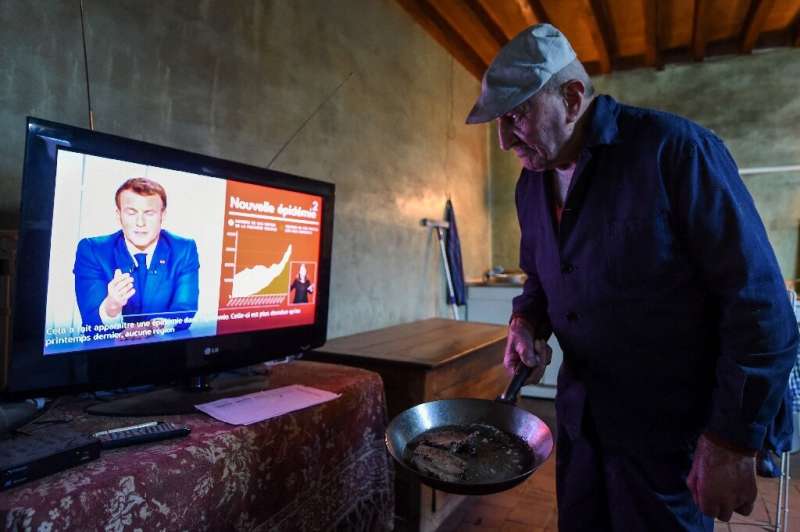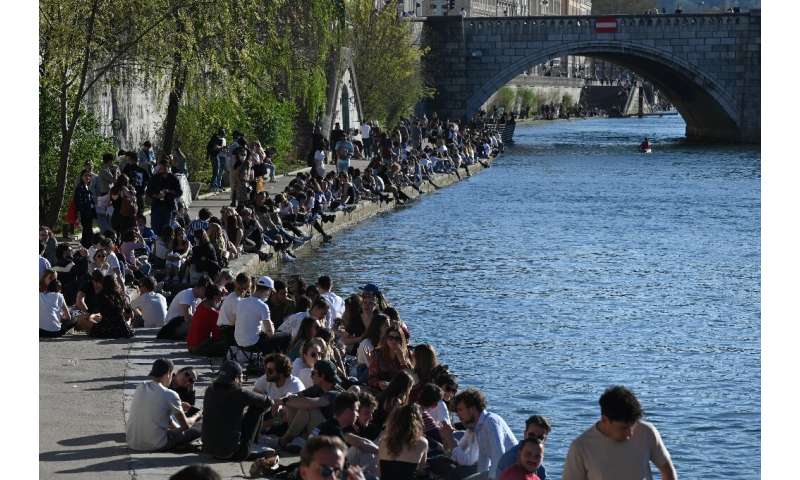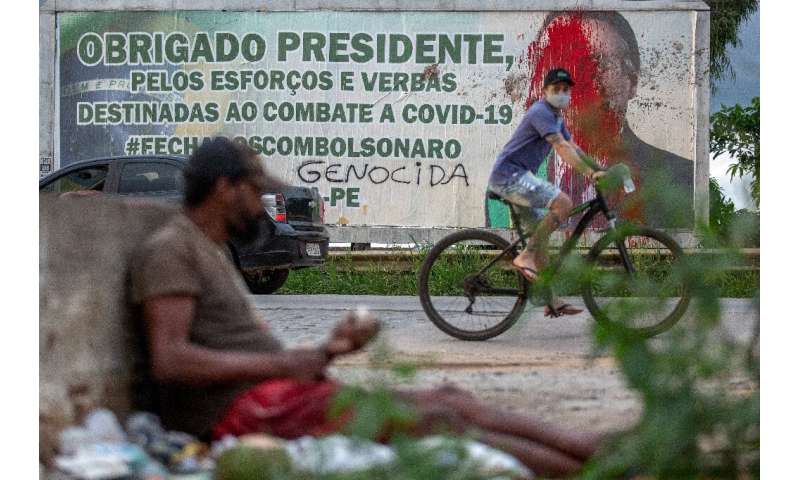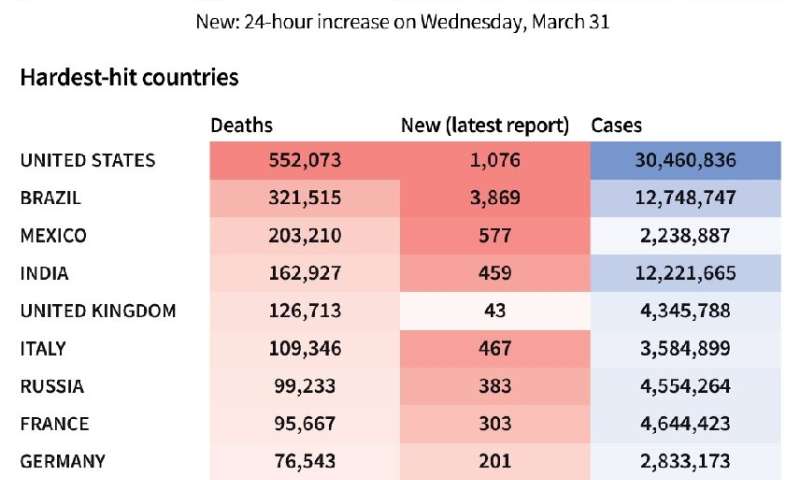
The WHO on Thursday slammed Europe’s “unacceptably slow” vaccine rollout and warned of a “worrying” surge in cases, as France became the latest country to impose new restrictions to combat soaring coronavirus infections.
In a sign of the devastation the virus is still causing while the world races to roll out vaccines, Brazil reported the country’s death toll had spiralled last month.
Officials said more than 66,000 people had died of COVID-19 in Brazil in March—more than twice as many fatalities as the country’s second-deadliest month of the pandemic, July 2020.
“Never in Brazilian history have we seen a single event kill so many people” in one month, said doctor Miguel Nicolelis, former pandemic response coordinator for Brazil’s impoverished northeast.
With the southern hemisphere winter approaching and the virus spreading fast, Brazil is facing “a perfect storm”, he told AFP.
The surge in Brazil has overwhelmed hospitals and forced doctors to make agonising decisions over whom to give life-saving care—prioritising those most likely to survive.
The virus has killed more than 2.8 million people worldwide since it emerged in the Chinese city of Wuhan in late 2019.
And though the world is looking to vaccines to end the upheaval the virus has brought, rollouts are off to a sputtering start in many countries, notably in Europe.
“Vaccines present our best way out of this pandemic… however, the rollout of these vaccines is unacceptably slow,” the World Health Organization’s director for Europe Hans Kluge said in a statement.

‘Precious weeks of liberty’
“We must speed up the process by ramping up manufacturing, reducing barriers to administering vaccines, and using every single vial we have in stock,” he added.
The organisation said Europe’s virus situation was “more worrying than we have seen in several months” and that slow rollouts were “prolonging the pandemic”.
Five weeks ago, the number of weekly new cases in the region had dipped to under one million. But last week there were 1.6 million new cases in Europe, the WHO said.
In France alone, daily cases have doubled to around 40,000 and hospitals are overflowing in flashpoints such as Paris.
The surge forced President Emmanuel Macron to relent and reimpose nationwide restrictions he rejected in January.
“We gained precious weeks of liberty,” he said in a national address late Wednesday, but the current measures “were too limited at a time when the epidemic is accelerating”.
The limited lockdown already in place in regions, including Paris, would be extended to the whole country from Saturday night for the next four weeks, he said.

Schools will close for three or four weeks depending on age level, he added.
The measures were met with a mix of resignation and anger, despite Macron’s suggestion that France could begin envisioning a return to normalcy by mid-May.
“Lockdown, the sequel… and the end?” Le Figaro headlined its front page Thursday.
And Le Parisien said Macron was defending his strategy of “slowing without shutting down” even though “the situation has never been so dangerous or complicated”.
Travel bubble
As during the first lockdown last spring, parents are scrambling to make arrangements for another round of distance learning.
“It was absolutely necessary to close the schools, even if it will be complicated for parents, and especially young children, to manage this situation,” said Laure, a 44-year-old researcher with two young boys in Paris.
In Italy, Prime Minister Mario Draghi extended restrictions until April 30, including restaurant and business closures.

German President Frank-Walter Steinmeier received the first dose of AstraZeneca’s vaccine on Thursday, just two days after authorities there recommended use of the jab only for people aged 60 and over.
German officials have been at pains to shore up public confidence in AstraZeneca’s vaccine, which has been on a rollercoaster ride in Europe.
Several other countries, including France, Spain and Canada, have also imposed age limits on the AstraZeneca shot over the occurrence of rare but severe blood clots in younger people.
The European medicines regulator said that experts probing links between the vaccine and blood clots have found no specific risk factors, though they are investigating further.
In a setback for another vaccine maker, about 15 million doses of Johnson & Johnson’s single-shot vaccine were ruined in a factory error, The New York Times reported—a blow to the US company’s efforts to quickly boost production.
Source: Read Full Article
